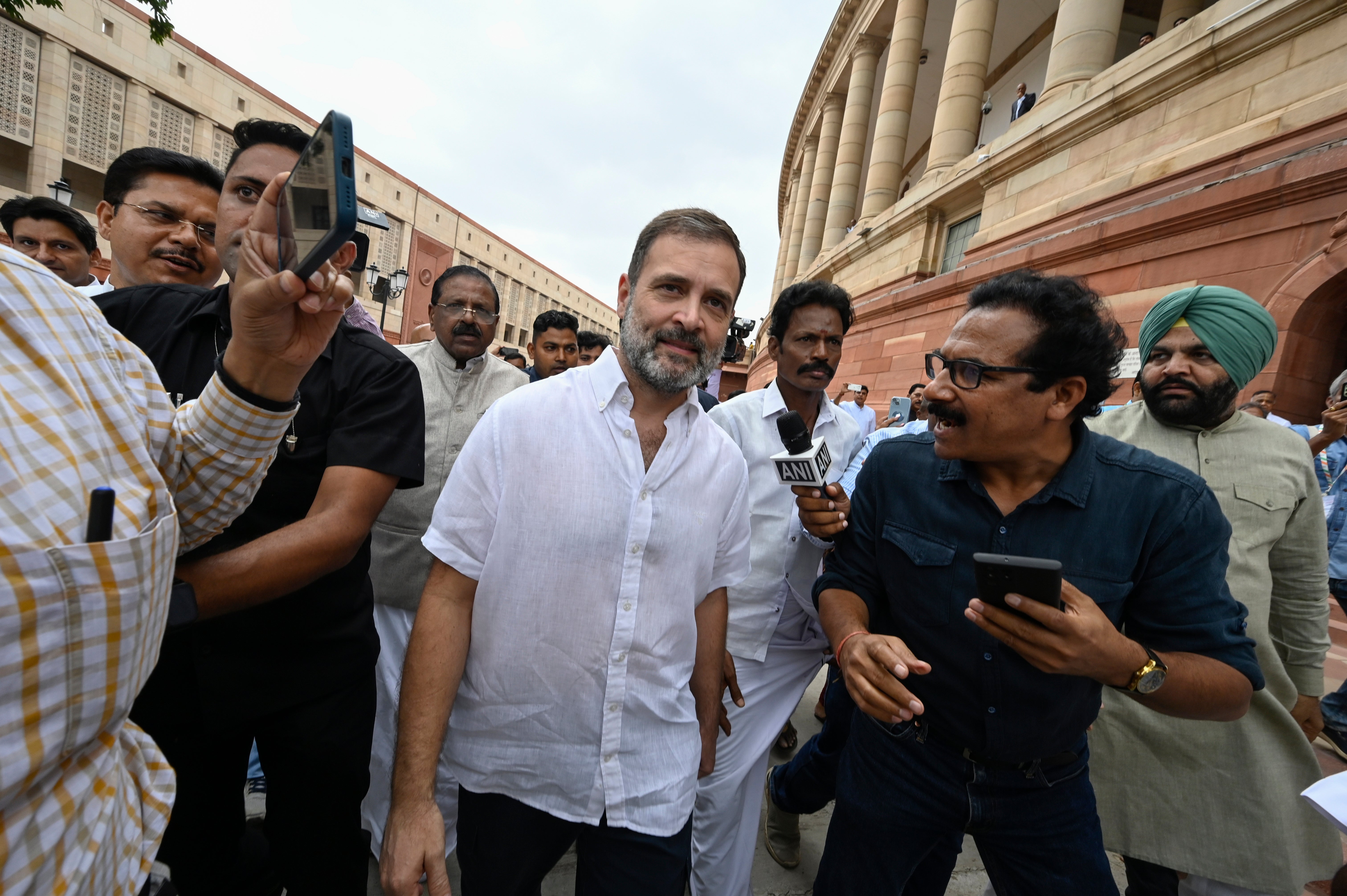India's opposition leader Rahul Gandhi calls for army deployment to end ethnic violence in Manipur
India’s opposition leader Rahul Gandhi has strongly condemned Prime Minister Narendra Modi’s government for its failure to control bloodshed in a remote northeastern state which he said has split into two

India’s top opposition leader unleashed a strong condemnation Wednesday of Prime Minister Narendra Modi’s government for its failure to control bloodshed in a remote northeastern state that he said has been split in two.
Rahul Gandhi told Parliament that the army would have restored peace in a day, but state authorities have allowed hatred and violence to fester for over three months. He called for the firing of the state government run by Modi’s Hindu nationalist Bharatiya Janata Party.
More than 150 people have died in Manipur and over 50,000 people have fled in fear since clashes erupted in early May.
The politician, who was reinstated as a lawmaker three days after the country’s top court halted his criminal defamation conviction for mocking the prime minister’s surname, was participating in a debate on a no-confidence motion moved by the opposition against the Modi government in the lower house of India’s Parliament. A vote is expected on Thursday.
Gandhi accused the Modi government of killing the spirit of India in Manipur state by silencing people’s voices. He also accused Modi of choosing silence while Manipur state burned creating a situation of civil war.
That led to an uproar as Modi's party objected to Gandhi's criticisms. Kiren Rijiju, Minister of Earth Sciences, demanded an apology.
Modi is expected to speak on the no-confidence motion on Thursday, though there is no threat to his government as his party and allies control more than 360 seats in 545-member Lok Sabha, the powerful lower house.
Three weeks ago, Modi broke more than two months of public silence over the conflict in Manipur when he briefly spoke to reporters at the entrance of Parliament and condemned the mob assaults on two women in the state who were paraded naked — but he did not directly refer to the larger violence. He has also not visited the state since the violence broke out.
A fiery critic of Modi and his main challenger in the 2024 polls, Gandhi was expelled from Parliament in March after a court convicted him for defamation over mocking the prime minister’s surname. He was reinstated as a member of Parliament on Monday, after India’s Supreme Court temporarily halted his conviction. The move is likely to strengthen a struggling opposition and their new alliance, which will take on Modi’s BJP in next year’s general election.
India’s Parliament has been locked in an intense impasse for weeks over the crisis in Manipur. Sessions nearly every day have been adjourned over protests and sloganeering from the opposition.
The conflict was triggered by an affirmative action controversy in which Christian Kukis protested a demand by mostly Meitei Hindus for a special status that would let them buy land in the hills populated by Kukis and other tribal groups, and get a share of government jobs.
Home Minister Amit Shah visited the state in May and held talks with community leaders and groups, but the violence persisted.
Bookmark popover
Removed from bookmarks